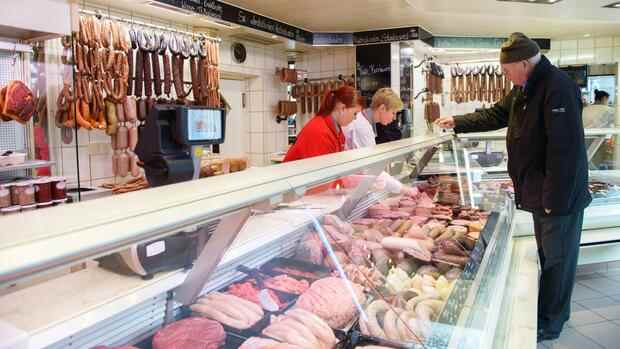Environmental economists from the Potsdam Institute for Climate Impact Research, the Technical University of Berlin and the University of Oxford had advocated making meat more expensive. According to your model calculation, the meat price would have to be significantly higher for a balanced climate and environmental balance of the products.
The environmental organization Greenpeace advocated raising the VAT rate for meat and dairy products from 7 to 19 percent.
The Greens member of the Bundestag, Renate Künast, expressed understanding for the demands of the environmental experts. “For a long time, I have argued that the prices for meat and animal products do not tell the truth about their influence on the climate and biodiversity,” the politician told Handelsblatt. “At the moment, however, we are already discussing how we can achieve more species-appropriate husbandry through a financial surcharge on animal products.”
Top jobs of the day
Find the best jobs now and
be notified by email.
The consumer policy spokesman for the Union parliamentary group, Volker Ullrich (CDU), meanwhile turned against price increases. “Meat must not become a luxury that people with a small income can no longer afford,” he told the Handelsblatt.
Inflation, sharply rising energy and gas prices and high rents in many places are already challenging for many consumers, Ullrich warned. A debate about increasing the price of meat products would therefore come at the wrong time.
FDP for European action
FDP consumer politician Judith Skudelny is skeptical about price increases. It would be desirable if consumers were willing to pay significantly more money for better meat quality – along with better animal welfare and higher environmental standards – said the MP in the Handelsblatt. However, the past has shown that this is not the case to a sufficient extent.
Skudelny is therefore convinced that the introduction of significantly higher standards at national level would not lead to better production methods in Germany. Rather, there would probably be a “relocation of production to countries whose standards are significantly below ours,” she said. Nevertheless, the discussion about meat prices must be pushed forward. “However, we need at least a European approach,” emphasized the FDP politician.
According to the scientists’ model calculations, depending on the production process, a kilogram of beef should be 35 to 56 percent more expensive in industrialized countries, lamb and pork by 19 percent and poultry by 25 percent.
The Potsdam environmental economist Linus Mattauch criticizes that higher prices in the name of climate protection are only concentrated in a few areas. “While we tax greenhouse gas emissions in the electricity and transport sectors to try to reduce them, the aforementioned environmental effects of meat consumption are not taken into account,” he said. The meat price does not reflect it and is therefore set too low.
For researchers, pricing meat is essential to price in the magnitude of the environmental and health externalities associated with livestock farming and meat consumption. In this context, Mattauch pointed out that 13 percent of global greenhouse gas emissions can be attributed to livestock farming.
Livestock breeding also has an impact on nitrate pollution in soil and water and on biodiversity, the scientist explained. Forests would be cut down to create new pastures and grow fodder. There is also a connection between certain diseases and high meat consumption.
The CSU consumer politician Ullrich admitted that the price of meat does not fully reflect the actual costs and thus the adverse effects on the environment and health. However, consumers are already demanding more animal welfare and better working conditions in meat processing. “Here, with the increased sensitivity, a paradigm shift can already be observed.”
More: More expensive, greener, more digital: This is how the business with everyday goods is developing
